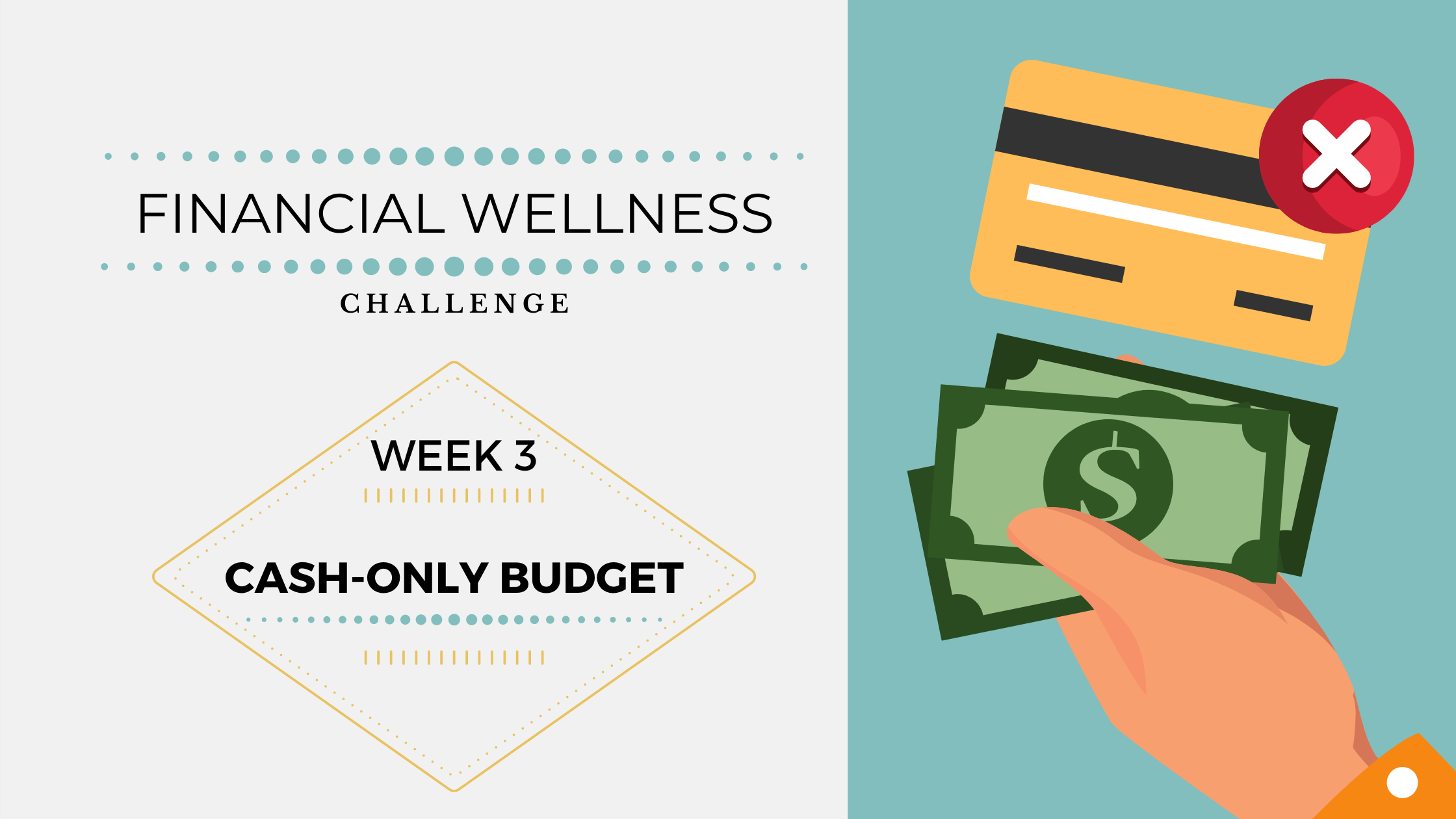Financial Wellness Challenges – Week 3: Budgeting with cash

Week 3 – Budgeting with cash
Hi there! Welcome to week 3 of the financial challenge! This week’s challenge is about budgeting with cash and avoiding credit and debit cards.
This is an easy way to keep your spending on track. Last week’s challenge was to cut back on spending. We discussed several things to review to help you cut back on purchases to help you save money. This week, we are going to discuss a new way to save money and ways to help you follow through.
Week 3 Challenge: November 23 – November 29
Budgeting with Cash: Use Cash only (keep the credit and debit cards put away)
Say goodbye to splurge spending!
What? Who uses cash anymore? People who use cash are usually more successful in sticking to a budget. Using cash works because unlike a plastic card, you have a limited amount of money and it forces you to only spend the amount you have on hand. You don’t have a choice but to put something back.
Here’s what you do while budgeting with cash:
Look at your monthly spending, break it down into a week, then into a day. Figure out how often you can go to the bank and withdraw the amount of cash you need accordingly. The goal is to do this for a month at a time, but if you need to, start small, with one week at a time, then two weeks, and so on until you reach a month. Withdraw enough for gas and groceries ( your must-haves that you purchase each day or week). Refer to your budget so you know exactly how much you need. Include your big expenses such as rent/house payment, phone bill, electric and water bill, and insurance payments.
If you can’t pay your bigger bills locally, (my bank sold my house loan to another lender located in a different state) be sure to have that in your budget, and don’t over-extend yourself when you withdraw your cash for the rest of your bills and daily/weekly spending.
You can do this a couple of ways:
-
- Put the money somewhere safe for the week. Then, every day put enough money for the day’s expenses in your wallet and only spend what you budgeted for. Challenge yourself not to spend more than you have in your wallet that day and congratulate yourself when you master the challenge.
- Use the envelope system. Put money for each expense in a separate envelope and use only that money for that expense each day. Or add to the envelope each week for larger expenses that are paid once a month such as the electric bill or the water bill. When your bill is due, pay it in person with cash.
A true cash-only budget does not allow any credit cards, debit cards, or checks.
How do I manage the bills I can not pay with cash?
If you use a debit or credit card, for those expenses, put a limit on it and only use it for those expenses. Did you know you can do that? All you have to do is give your credit/debit card provider a call. But how do you determine the limit? This is where you go back to your budget. A good rule of thumb would be to make your limit the same number that you determined for your budget.
If you use electronic payment, set it up for reoccurring payments each month for at least 5 days before it is due so it will get there on time.
If you send a check, send it at least 7 days ahead to ensure the payment arrives on time.
Budgeting with cash: Benefits of paying cash-only
- Paying cash can have a positive impact on your spending
- Paying cash is effective because you physically see your cash stash shrink when you hand over the money
- Paying cash helps you control your money better and pay off debts faster
- A cash-only budget gives you a limited amount of money and curbs splurge shopping
- You will learn to use what you already have instead of buying more and overspending your budget
- You will better determine your priorities and spending habits, and be able to fix your thinking and spending. Maybe you are not realizing that you are buying a $7 latte every day or a new blouse that you don’t need 2 or 3 times a week
- A cash-only budget will help you develop better spending habits by keeping your budget balanced and not creating excess debt